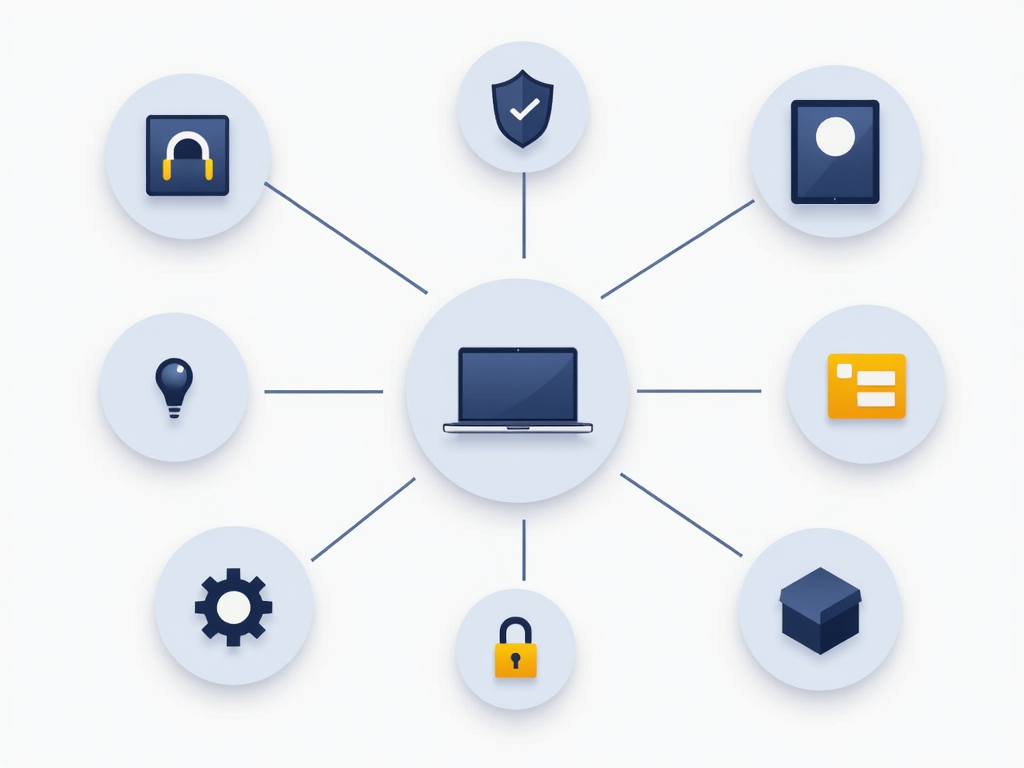Why Encryption Matters for Your Data
In today's digital age, protecting your personal data is more important than ever. Encryption is a powerful tool that helps keep your information safe from prying eyes. This article explores why encryption matters for your data and highlights the role of VPNs and other online privacy tools in safeguarding your privacy.
Why Encryption Matters for Your Data
Encryption is like a secret code that scrambles your data, making it unreadable to anyone who doesn't have the key. Whether you're sending an email, making an online purchase, or browsing the web, encryption ensures that your personal information stays private.
Imagine you're sending a postcard through the mail. Anyone who handles it can read what's written on it. But if you put that postcard in an envelope, only the intended recipient can see the message. Encryption works similarly, protecting your data from being intercepted and read by unauthorized parties.
In a world where cyber threats are on the rise, encryption is your first line of defense. It secures your sensitive information, such as passwords, credit card numbers, and personal messages, from hackers and identity thieves.

The Role of VPNs in Enhancing Online Privacy
A Virtual Private Network (VPN) is another essential tool for protecting your online privacy. It creates a secure, encrypted tunnel between your device and the internet, hiding your IP address and encrypting your internet traffic.
When you use a VPN, your online activities are shielded from your Internet Service Provider (ISP), government surveillance, and potential hackers. This is especially important when using public Wi-Fi networks, which are often unsecured and vulnerable to attacks.
For example, if you're working from a coffee shop and connect to their Wi-Fi, a VPN ensures that your data remains private, even if the network is compromised.

The Importance of a No-Logs Policy in VPNs
When choosing a VPN, one of the most critical factors to consider is its logging policy. A no-logs policy means that the VPN provider does not collect or store any information about your online activities.
Why does this matter? If a VPN keeps logs, it could potentially be compelled to hand over your data to authorities or third parties. A strict no-logs policy ensures that there's no data to hand over, providing an extra layer of privacy.
Look for VPNs that have been independently audited to verify their no-logs claims. This transparency builds trust and assures users that their privacy is truly protected.

How to Choose the Best VPN for Your Needs
With so many VPN options available, selecting the right one can be overwhelming. Here are some key factors to consider:
- Security Features: Look for strong encryption protocols, such as AES-256, and additional features like a kill switch and DNS leak protection.
- Speed and Performance: A good VPN should offer fast connection speeds without significant slowdowns.
- Server Locations: More server locations provide better access to geo-restricted content.
- User-Friendly Interface: The VPN should be easy to use, even for beginners.
- Customer Support: Reliable customer service is essential for troubleshooting issues.
Consider your specific needs, such as streaming, gaming, or torrenting, and choose a VPN that excels in those areas.

Top 5 Online Privacy Tools Every User Should Have
In addition to a VPN, there are several other tools that can enhance your online privacy:
- Password Manager: Stores and generates strong, unique passwords for all your accounts.
- Ad Blocker: Prevents intrusive ads and trackers from following you online.
- Secure Messaging App: Uses end-to-end encryption to protect your communications.
- Privacy-Focused Browser: Blocks trackers and enhances browsing privacy.
- Two-Factor Authentication (2FA): Adds an extra layer of security to your accounts.
These tools work together to create a robust privacy shield, protecting you from various online threats.

Encryption is a fundamental aspect of data privacy, and tools like VPNs play a crucial role in safeguarding your online activities. By choosing a VPN with a strict no-logs policy and utilizing other privacy tools, you can take control of your digital privacy.
Remember, protecting your data is an ongoing process. Stay informed and proactive to keep your information safe.